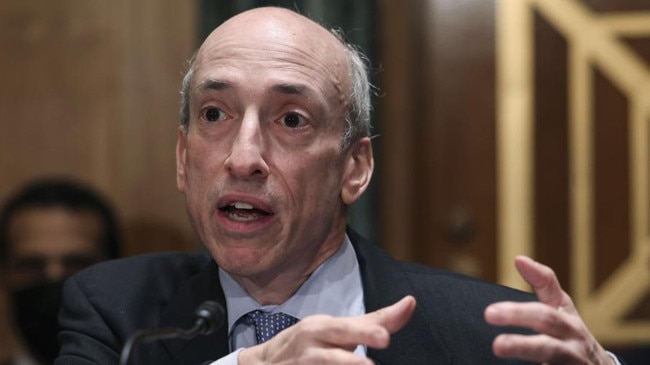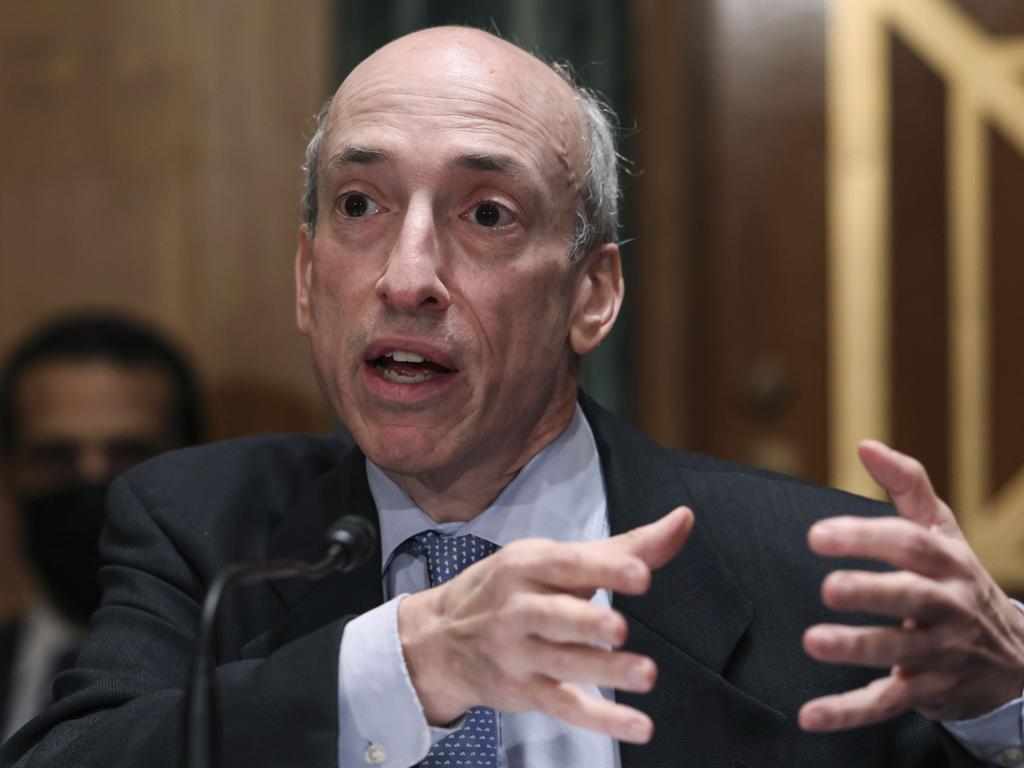SEC proposes broad disclosure rules for private investment funds
Private-equity and hedge-fund managers would need to provide statements on fund performance, compensation, fees and expenses.

Regulators proposed expansive new requirements for private investment funds Wednesday as part of a widening effort to police a rapidly growing but relatively opaque corner of the capital markets.
In a Wednesday morning meeting, the Securities and Exchange Commission passed a proposal that would force hedge funds and private-equity funds to provide basic disclosures to their investors and guard against conflicts. The Democratic-controlled commission approved the proposal by a 3-to-1 vote, signalling a strong chance that a final version will be adopted. The agency will now seek public comments for at least two months before issuing a final rule.
Since taking office last April, SEC Chairman Gary Gensler has moved to aggressively tighten rules on Wall Street intermediaries, aiming to save money for investors and companies raising capital. A major focus in recent weeks has been on private markets, where firms operate with far less government oversight than publicly traded companies or mutual funds.
Private-equity and hedge funds cater mostly to wealthy clients and institutional investors, such as pension funds and insurers. The SEC has traditionally viewed these investors as more sophisticated – and capable of fending for themselves without the government’s help – than small investors.
Wednesday’s proposal would mark a sea change. For the first time, private-fund managers would be required to provide their investors with quarterly statements detailing fund performance, fees and expenses, as well as manager compensation. Funds would have to undergo annual audits, in an effort by the SEC to place a check on asset-valuation estimates often used to calculate fund managers’ fees.
Mr Gensler said the proposal reflects the growing importance of private funds, which hold more than $US18 trillion of gross assets. He noted that their investors include pension plans representing millions of Americans, as well as university endowments.
“Private fund advisers, through the funds they manage, touch so much of our economy,” Mr Gensler said. “Thus, it’s worth asking whether we can promote more efficiency, competition, and transparency in this field.” While the new disclosures proposed Wednesday wouldn’t have to be filed with the SEC or made public, private funds would be required to maintain books and records to allow regulators to assess their compliance with the rules.
Private funds would also be prohibited from certain practices that could motivate asset managers to put their interests ahead of their clients’ or be “contrary to the public interest,” the SEC said in a fact sheet.
The proposal is likely to garner resistance from financial firms such as Blackstone and KKR & Co that have a powerful lobbying presence in Washington.
“We work closely with our investors to ensure they have the information they need to make the best investment decisions,” said Drew Maloney, president of the American Investment Council, a private-equity trade group. “We are concerned that these new regulations are unnecessary and will not strengthen pension returns or help companies innovate and compete in a global marketplace.”
The Managed Funds Association, which lobbies on behalf of hedge funds, echoed that concern, saying the SEC’s proposed rules would “harm the most sophisticated investors.” The GOP also is poised to push back. Hester Peirce, the lone Republican among the four current SEC commissioners, said she wouldn’t support the proposal, which she characterised as a recasting of the agency’s mission to protect small investors.
“It embodies a belief that many large, sophisticated institutions and high-net-worth individuals are not competent or assertive enough to obtain and analyse the information they need to make good investment decisions or to structure appropriately their relationships with private funds,” Ms Peirce said of the proposal. “Our resources are better spent on retail-investor protection.” Progressive groups cheered the proposal.
“More disclosure doesn’t hurt any investor or capital formation in any way,” said Andrew Park, a senior policy analyst at Americans for Financial Reform. “But darkness protects private equity from accountability to investors.”
SEC examiners have highlighted a range of compliance deficiencies in private funds, saying in a report last month that managers sometimes give investors misleading information about their performance to charge higher fees.
Currently, hedge funds only have to file quarterly snapshots of their equity holdings to the SEC.
The quarterly statements added under Wednesday’s proposed rules would require liquid funds to provide net total returns since inception, over certain time periods and each quarter during the current calendar year. In the case of illiquid funds, the statements would provide the gross and net internal rates of return, as well as gross and net multiple of invested capital for the illiquid fund to capture performance from the fund’s inception through the end of the quarter.
Wednesday’s proposal follows another set of disclosures the agency proposed for private funds in January. That rule was geared toward enabling financial regulators to better spot risks building up in private markets.
The SEC also voted unanimously to issue a proposal that would shorten the time it takes to settle securities trades, a plan that gained momentum after the meme-stock frenzy of January 2021 exposed problems with the plumbing of the US stock market. Settlement is the process in which securities are delivered to the buyer and cash is delivered to the seller.
Under the proposal, Wall Street would switch to so-called T+1 settlement in which securities trades are settled one business day after a trade is agreed upon by March 2024. It currently takes two business days to settle trades.
Speeding up the settlement process could lower the amount of collateral that brokers must post at the National Securities Clearing Corp, the clearinghouse for US stock trades. On January 28, 2021, Robinhood Markets blocked its customers from buying shares of GameStop and other meme stocks after the brokerage received a $US3bn margin call from the NSCC. After that episode, Robinhood was among the firms that advocated for accelerating the settlement process.
The SEC’s proposal stops short of ordering T+0 settlement in which trades would settle the same day. Proponents say markets would become more efficient with same-day or even instantaneous settlement. But Wall Street lobbying groups have said same-day settlement would require a fundamental overhaul of many of the stock market’s processes and could introduce new risks.
Alexander Osipovich and Sebastian Pellejero contributed to this article.
The Wall Street Journal




